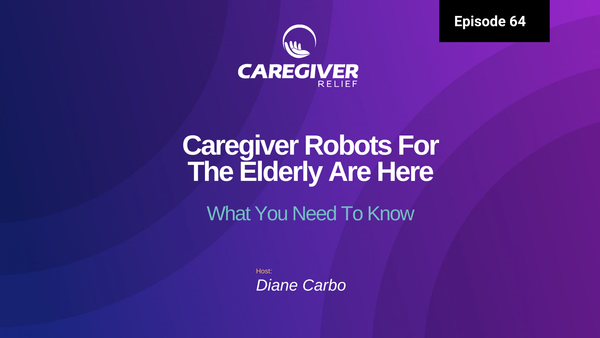What is Alcohol Abuse Disorder?

Alcohol abuse disorder is one of the most serious conditions that can affect people and their loved ones. It is a mental health condition that can have devastating consequences if left untreated. Alcohol abuse disorder, also known as alcohol addiction, is characterized by an excessive consumption of alcohol, despite knowing the physical, mental and social damage it can cause. People with this disorder are unable to control their drinking behavior even when faced with serious negative consequences, such as losing friends, family, job or legal trouble.
It is important to understand that alcohol abuse disorder is not an issue of simple lack of willpower; for many individuals, it is a serious medical condition that requires treatment. Professional help is often needed in order to help people break free from the grips of alcohol abuse disorder. With the right support, people can find their way back to sobriety and reclaim their lives.
What is Alcohol Abuse Disorder?
Alcohol abuse disorder (AUD) is a mental health problem that happens when someone drinks heavily over a long period of time. It can lead to physical harm, changes in behavior and addiction. AUD can be considered a more severe form of alcohol dependence or alcoholism. This means that someone who is suffering from alcohol abuse disorder will consistently abuse alcohol despite the potential consequences, and it leads to numerous negative consequences.
Definition of Alcohol Abuse Disorder
According to the Diagnostic and Statistical Manual of Mental Disorders, 5th Edition (DSM-5), alcohol use disorder is a pattern of problematic drinking that causes clinically significant distress or impairment, as well as significant problems in important areas of life such as work, school, and social functioning.
The DSM-5 lists 11 criteria for diagnosing AUD. An individual must meet two or more of these criteria within a 12-month period to be officially diagnosed with alcohol use disorder. The criteria are divided into four categories: an increase in tolerance, withdrawal symptoms, increased consumption, and an inability to reduce consumption.
- Tolerance: needing more and more alcohol to feel the effects, or a decrease in the effect of alcohol after the same amount is consumed
- Withdrawal: feelings of anxiety, nausea, insomnia, irritability, tremors, or sweating when not using alcohol
- Consumption: drinking more than intended, drinking for longer than planned, unsuccessful attempts to cut down on consumption
- Inability to stop: spending a lot of time drinking or recovering, giving up important activities to drink, continuing to drink despite negative consequences
Causes of Alcohol Abuse Disorder
Alcohol abuse disorder can be caused by a variety of factors. These can include mental, emotional, and physical health issues, as well as lifestyle and environment. A few of the most common causes of alcohol abuse disorder are:
- Genetics or family history – if a person’s parents or relatives have battled addiction, they are more likely to develop addiction problems.
- Environmental factors – living in an environment where alcohol is readily available, or is celebrated can put a person at a greater risk of developing an alcohol addiction.
- History of trauma or abuse – people who have experienced trauma or abuse may turn to alcohol as a coping mechanism.
- Mental health issues – untreated mental health issues, such as anxiety, depression, or bipolar disorder can increase the risk of developing an alcohol addiction.
- Social influence – peer pressure, stress, or social acceptance of drinking can lead to an increased risk of developing an alcohol addiction.
It’s important to note that any of these risk factors can play a role in someone developing an alcohol abuse disorder, but there is no single cause that is attributed to all cases of alcohol abuse. Understanding which factors may be contributing to your own personal struggle with alcohol can help when finding the right form of treatment.
Signs & Symptoms of Alcohol Abuse Disorder
Alcohol abuse disorder can have a significant impact on a person’s life and can be difficult to recognize. Understanding the signs and symptoms of the disorder is important in order for people to receive the necessary help.
Physical symptoms may include nausea, weight loss, poor appetite, tremors, and a decrease in energy level. Psychological symptoms can include anxiety, depression, mood swings, lack of motivation, and difficulty concentrating. In some cases, people may also experience hallucinations and delusions.
Behavioral symptoms can be more difficult to identify, but frequent warning signs include poor performance at work or school, secretive behavior, changes in sleeping or eating patterns, hanging out with new friends, lies or excuses about drinking and withdrawal from social activities.
Health Complications of Alcohol Abuse Disorder
Consuming alcohol in excess for long periods of time can have serious effects on your physical health. As with any substance abuse, the longer and more frequently you consume alcohol, the higher the risk of developing health complications.
The potential health risks of alcohol addiction are wide-ranging, and include changes to the brain, liver disease, high blood pressure, heart damage, compromised immune system, type 2 diabetes, cancer, and even death.
Brain functioning can be altered due to a long-term abuse of alcohol. Heavy drinking affects the communication of neurons, resulting in impaired decision-making, problem solving, and interpreting information. Cognitive deficits can result from these changes, such as memory loss, learning disabilities, poor coordination, and problems with personality and behavior.
Alcohol abuse can cause damage to the liver, resulting in cirrhosis, fatty liver, or even liver cancer. Alcohol can also cause high blood pressure, which increases the risk of stroke, heart attack, coronary artery disease, and an irregular heartbeat.
Alcohol is known to weaken the immune system, making it harder to fight off infections and diseases. Additionally, alcohol abuse can lead to type 2 diabetes, increasing the risk of long-term health issues such as blindness, nerve damage, and kidney failure. Finally, alcohol consumption increases the risk of certain types of cancer, including breast cancer, throat cancer, and liver cancer.
Untreated alcohol addiction is life-threatening, and can result in organ failure and death. It is important that individuals who are struggling with this condition receive medical attention and treatment as soon as possible.
Treatment Options for Alcohol Abuse Disorder
If you or someone you care about is suffering from alcohol abuse disorder, there are a variety of treatment options available. Treatment can be found in both inpatient and outpatient settings, and often involve a combination of medication, psychotherapy, and support groups.
Inpatient treatment involves staying in a residential facility for a certain period of time. In this setting, individuals receive around-the-clock care from medical professionals and clinicians, and have access to intensive medical and psychological services. The goal of inpatient treatment is to provide individuals with the skills and tools they need to avoid relapse.
Outpatient treatment involves attending regular counseling sessions while living at home. During these sessions, individuals learn how to cope with cravings, recognize triggers, and practice healthier ways of coping with stress. The frequency of counseling sessions depends on the individual’s needs. In some cases, people may need to attend once a week, and in other cases, more frequent visits may be required.
Medication is also frequently used to treat alcohol abuse disorder. Commonly prescribed medications can help reduce cravings and reduce the risk of relapse. Psychotherapy is another form of treatment that can be used to help individuals identify and address underlying causes that contribute to their addiction. Therapy may be conducted one-on-one between a patient and therapist, or in a group setting.
Support groups are also an important part of recovery. While attending regular meetings, individuals can learn from the experiences of others and find emotional support in their peers. Support groups can also provide a safe space to talk openly about feelings without fear of judgment.
Addiction Recovery
If you or someone you know is struggling with alcohol abuse disorder, taking the first step towards recovery can be daunting. However, understanding the process and what to expect can make this road easier to navigate.
When recovering from alcohol abuse disorder, it is important to remember that there is no one-size-fits-all approach. Different people respond to different techniques, and the best way to achieve success is to experiment and find the approach that works best for you.
Steps to Recover from Alcohol Abuse Disorder:
- Seek professional help: Seeking assistance from a psychologist, psychiatrist, social worker, or other mental health professional can assist in diagnosing and treating alcohol abuse disorder.
- Engage in therapy: Therapy is an essential part of addiction recovery, as it helps individuals identify behaviors, thoughts, and situations that can lead to relapse.
- Identify and avoid triggers: Triggers are any thing, situation, person, or emotion that can cause an individual to relapse. It is important to identify what these triggers are and actively work to avoid them.
- Develop a support system: Having a solid support system in place is essential for successful addiction recovery. Family members, friends, and peers who have had similar experiences can all be a source of support.
- Find ways to cope: Identifying positive coping skills such as self-care, exercise, and participating in hobbies that help relieve stress is important in order to prevent relapse.
- Attend self-help groups: Self-help or mutual aid groups such as Alcoholics Anonymous provide individuals with the opportunity to connect with peers and access additional resources.
- Participate in aftercare programs: Aftercare programs such as sober living houses or outpatient treatment can help an individual maintain long-term sobriety.
Emotional Support
When someone has been diagnosed with alcohol abuse disorder (AUD), they often need emotional and mental support in order to recover. Therapy, one-on-one counseling, support groups, and family therapy are some of the most effective ways to help an individual who is struggling with AUD.
Therapy is individualized and focuses on helping the person process their emotions, while also teaching them healthy coping skills. The therapist will also provide guidance and insight into practical strategies for managing cravings, avoiding triggers, and developing healthier habits.
Support groups are places where individuals who are dealing with AUD can come together and offer mutual support. Having a social network can be incredibly validating and helpful in recovery. Support groups can provide regular connection, encouragement, and understanding from peers who are facing similar struggles.
Family therapy is another important way to support individuals in their AUD recovery. This type of therapy focuses on improving communication among family members and helping everyone involved understand how to properly support the individual with AUD. Family therapy can also be a really powerful way to restore trust and direct communication.
Finding the right combination of emotional support is essential to long-term recovery from AUD. Support can come in many forms, including therapy, support groups, family therapy, or a combination of the three.
Coping Strategies
Coping with an alcohol abuse disorder can be difficult, especially if you’re trying to break the habit without professional help. Here are some practical coping strategies that can help people manage their triggers and prevent a relapse into unhealthy habits:
- Identify Triggers: Triggers are situations or emotions that make it harder for an individual to stay sober. People should identify their own personal triggers and develop a plan for how to react when these triggers arise.
- Avoid High-Risk Situations: It is important to avoid people or places that could encourage or enable alcohol use. Instead, try to replace those activities with engaging alternatives that provide emotional support.
- Know Your Limits: It’s important to understand one's individual tolerance level in regards to alcohol. Being aware of this information can help an individual practice self-control and make it easier to stop once they have had enough.
- Seek Support: Talking with a therapist, attending support groups, or finding a sponsor can help people manage their triggers and stay away from alcohol. Having someone to talk to can make a big difference in staying sober.
- Practice Self-Care: Taking time out to do something enjoyable and relaxing can help people manage stress and cravings. Self-care can include anything from yoga to art therapy, as long as it helps to reduce negative feelings or triggers related to alcohol.
While these strategies may not work for everyone, they can be used to help those struggling with alcohol abuse disorder to better manage their triggers and stay away from alcohol. It’s also important that individuals seek professional help, as many times these strategies alone are not enough to overcome an addiction.
Long-Term Recovery
Recovery from alcohol abuse disorder is a long process that requires dedication and perseverance. Although there are specific treatment options available, it is ultimately up to the individual to make a long-term recovery plan and stick to it. A successful recovery plan should include manageable goals, activities, and strategies that promote sobriety and improved mental and physical health.
It starts with recognizing the problem and accepting responsibility for it. Treatment centers and therapists can help create a personalized plan that works for each individual. This plan includes setting realistic goals, such as avoiding situations that put one at risk for relapse and finding healthy outlets for stress relief. It also involves finding effective coping mechanisms when cravings or triggers arise. Additionally, support groups, family therapy, and regular meetings can help provide the support and accountability needed to stay on track with recovery.
Creating a long-term recovery plan is the key to overcoming alcohol abuse disorder. It takes time and effort, but it’s worth it in the end. With the right plan, one can make lasting positive changes and live a life free of the negative effects of addiction.
Prevention
Prevention is always better than cure. With alcohol abuse disorder, there are certain measures that people can take in order to reduce the risks of developing a problem with alcohol.
The first step is to be aware of your drinking habits and the amount of alcohol that you are consuming. If you think that you are at risk or showing signs of abusing alcohol, it is important to seek help as soon as possible.
It is also important to keep an eye on your mental and physical health, as poor health increases the risk of developing alcohol abuse disorder. Getting plenty of sleep, eating a balanced diet, minimizing stress levels, and exercising regularly can all help to prevent issues with alcohol.
Finally, it is important to stay around family and friends who do not have an alcohol problem themselves. Being in a supportive environment that encourages sober activities can help to further reduce the risks of falling into abusive behavior.
Alcohol abuse disorder is a serious condition that can have long-term, debilitating effects on a person's mental and physical wellbeing. Understanding what alcohol abuse disorder is, its causes, signs and symptoms, health complications, and available treatment options, all play an important role in helping individuals recover and reduce the risk of relapse.
It is important to familiarize yourself with the essential terms used to describe alcohol abuse disorder, so you can be aware of any risks or changes in behavior in yourself or loved ones. Alcohol abuse disorder is characterized by physical or psychological dependence on alcohol, increased tolerance, and difficulty controlling its consumption. Additionally, there are many physical and psychological symptoms that can signal a potential problem such as changes in behavior, withdrawal, blackouts and cravings.
Any long-term, untreated alcohol addiction can lead to serious health complications, including liver damage, high blood pressure or heart problems. Seeking treatment early can prevent larger medical issues. It is also important to note that addiction recovery doesn't end with professional treatment. Emotional support from family, friends, and support groups can help individuals stay on track and maintain a successful recovery plan.
At the same time, arming yourself with practical coping strategies and preventative steps can keep your health and emotional wellbeing in check. Coping strategies like identifying and avoiding triggers, and maintaining healthy, sober habits can be very helpful in sustaining a life of sobriety. Remember, if you or someone you love is struggling with alcohol abuse disorder, there is always help available. Reach out to an expert who can provide you with more information and guide you towards a healthy path of recovery.




